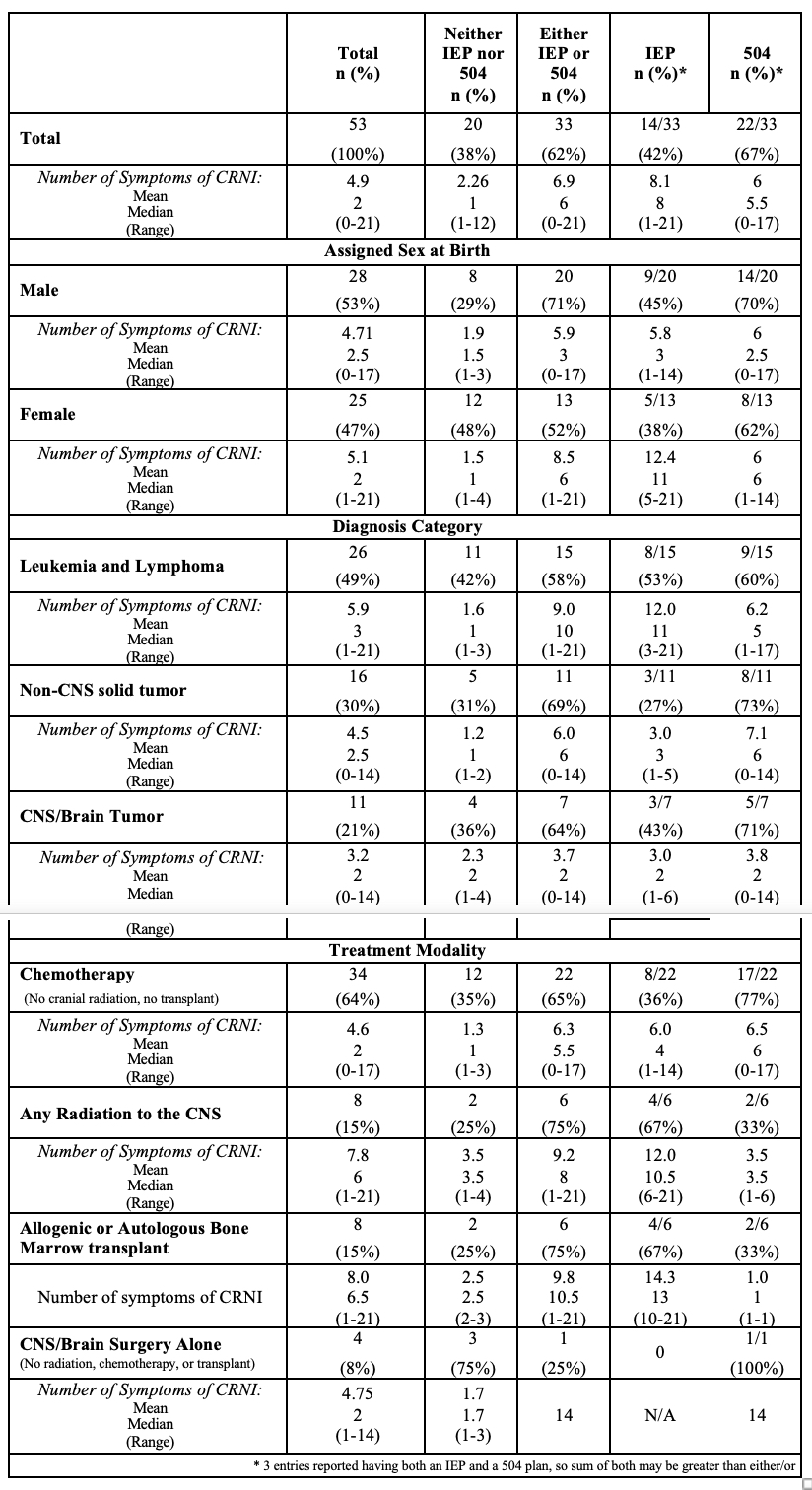Hematology/Oncology
Session: Hematology/Oncology
355 - Patterns of Special Education Utilization in Child Cancer Survivors
Friday, May 3, 2024
5:15 PM - 7:15 PM ET
Poster Number: 355
Publication Number: 355.458
Publication Number: 355.458

Mathieu N. Boulad, MD, M.S. (he/him/his)
PGY-2 Internal Medicine-Pediatrics Resident
The Barbara Bush Children's Hospital at Maine Medical Center
Portland, Maine, United States
Presenting Author(s)
Background: Cancer-related neurocognitive impairment (CRNI) affects 40%-100% of childhood cancer survivors (CCS). CRNI can affect learning aptitude and has been associated with decreases in educational level attainment. For school-age CCS with CRNI, educational services, which are typically provided through a 504 plan (accommodations) or an individual education plan (IEP, instructional or ancillary services), may mitigate this risk.
Objective: Our long-term goal is to develop educational guidelines for CCS which inform assessment and beneficial interventions. An early step towards this goal is to understand what educational support CCS are receiving through a 504 plan or an IEP.
Design/Methods: We developed a survey with input from two pediatric neuropsychologists, one of whom specializes in CRNI, an educational psychologist, an educator, and a parent. The survey included questions about demographics, school interventions (IEP or 504 plan), symptoms of CNRI, cancer diagnosis, and categories of treatment. We sent surveys to 183 parents of school-age CCS who were seen at a single regional pediatric oncology clinic. All CCS had completed treatment at least 1 year prior.
Stratification of school interventions and the number of symptoms of CRNI was based on sex, diagnosis, treatment, and number of symptoms of CRNI. Descriptive statistics were calculated.
Results: We had 56 responses to this survey (31%). Three surveys were excluded as the CCS were homeschooled, providing a sample size of 53. All CCS identified as white and 96% attended public school. (Table 1) Over 60% of school-age CCS utilize an IEP or 504 plan. CCS with educational support had a greater number of CRNI symptoms than CCS who did not receive services. A greater percentage of males had educational services (71%) than females (52%). For CCS who received services, 45% of males utilized IEP compared to 38% of females. The percentage of CCS across all 3 categories of cancer who have an IEP or 504 plan ranged from 58%-64%. CCS treated for leukemia/lymphoma who had an IEP had the most symptoms of CRNI. (Table 2)
Conclusion(s): The majority of school-age CCS receive additional support through an IEP or 504 plan. The utilization of educational support correlates with the number of symptoms of CRNI. Males more often received services through an IEP than a 504 plan compared to females, although females had over twice the number of symptoms. Considering the long-term consequence of unaddressed CRNI, further research describing the specific educational support that CCS receive and assurance that there is no bias in the provision of services is of utmost importance.
.jpg)

